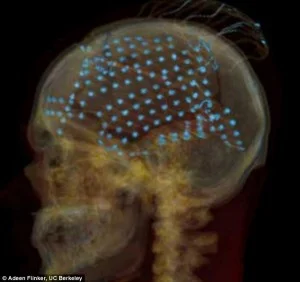 Have you ever wanted to be able to read minds? As children, we are especially smitten with the idea of having special ‘powers’ like these, although we quickly learn that such magical abilities are far from reality. Yet given the new imaging and electrophysiological methods that have allowed researchers to discover even more about the brain than has been previously imagined, how far away from mind-reading capabilities are we? Well, one group of scientists are now claiming that we are one step closer to this, albeit with a loose interpretation of what reading minds consists of.
Have you ever wanted to be able to read minds? As children, we are especially smitten with the idea of having special ‘powers’ like these, although we quickly learn that such magical abilities are far from reality. Yet given the new imaging and electrophysiological methods that have allowed researchers to discover even more about the brain than has been previously imagined, how far away from mind-reading capabilities are we? Well, one group of scientists are now claiming that we are one step closer to this, albeit with a loose interpretation of what reading minds consists of.
These researchers (Pasley et al., 2012) utilized a rare and somewhat controversial method known as electrocorticographic (ECoG) recordings, in which electrodes (devices used to measure brain activity) are implanted under the skull directly on the auditory cortex of the brain (the area that processes sound, speech, etc.). Due to the extremely invasive nature of the surgery required to implant these electrodes, the study was conducted on patients already undergoing neurosurgical procedures for epilepsy or brain tumors. Through this procedure, the researchers attempted to investigate the degree to which a computer program (after a training process) could translate brain activity into intelligible words.
After having participants listen to spoken words, Pasley and colleagues recorded the resulting unique waveform produced by each word/sound as picked up by the electrodes. They then fed those data into a computer program, which was trained to use an algorithm to reproduce the words initially heard. The results indicated that the program was able to replicate the words at above-chance levels on a first attempt, though they were not 100% comprehensible to a human listener. Furthermore, the findings suggested to the authors that with additional work, the program might be able to predict words based on brainwaves produced in real time. In other words, it would be able to read and report what people were thinking in the moment, or maybe even anticipate what they were going to say next.
While we are perhaps far away from a computer program being able to translate brain activity into every conceivable word in the English language, the benefits of such a mechanism are obvious. In particular, it would allow individuals who have had damage to speech-production areas of the brain, such as stroke patients or those with degenerative disorders, to utilize these programs to communicate to others. Of course, the benefits would also need to be weighed against the risks associated with such an invasive electrode-implantation surgery, which perhaps currently reduce the practicality of using such a method. Regardless, this study and its findings demonstrate that science is moving closer and closer to more specifically understanding the ways in which the mind works, and also makes it more apparent how such knowledge can be applied to clinical intervention approaches.
research journal article: http://www.ncbi.nlm.nih.gov/pmc/articles/PMC3269422/?tool=pubmed